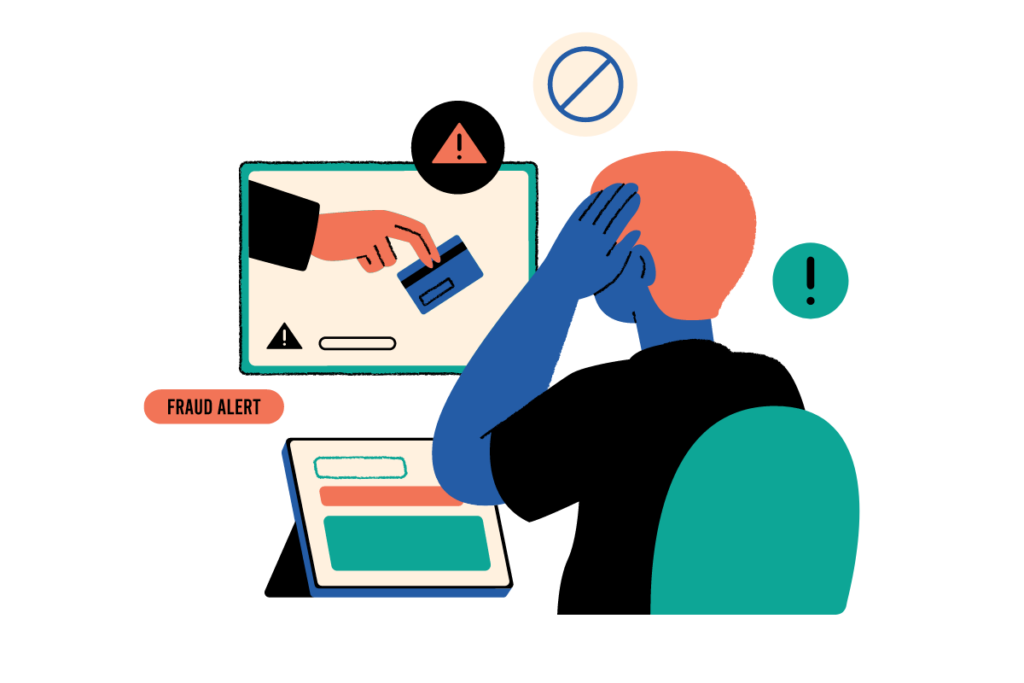Online property rent scams are widespread but how can we avoid them? How do renters authenticate landlords without reducing their chances of securing the property? Requesting previous tenant reviews or proof of property ownership sounds great in an ideal world but it’s quite likely to put a landlord off, especially in a market where demand outstrips supply. We believe that there are easy to implement, and reasonable practices if the rental transaction in a way that’s beneficial to both landlords and renters.
Our mission at Secureprop.com is to secure online property rental transactions for everyone. We believe that prevention trumps detection and we do everything in our power to facilitate seamless and safe online transactions. The aim of this blog is to provide actionable tips and steps to help you avoid rent scams and improve the overall rental experience for landlords and renters.

1. Understand rent scams
Definition and common types of rent scams
Rent scams involve fraudulent individuals or organizations posing as legitimate landlords or property managers to deceive prospective tenants. Common types of rent scams include:
- Phantom Rentals: Scammers create fake listings for properties that are either non-existent or not available for rent. They may use stolen photos and provide enticing details to attract unsuspecting victims.
- Identity Theft: Scammers pretend to be property owners or managers and request personal information such as Social Security numbers, bank account details, or copies of identification documents. This information can be used for identity theft.
- Payment fraud: Scammers often insist on wire transfers or upfront payments before signing any lease agreements or allowing property viewings. Once the money is sent, they disappear without providing the promised rental property.
Remember that the rent scammer’s end goal is typically to steal your money. Think before your transfer!
Example: In a well-known rental scam, a scammer claimed to be the landlord of a desirable apartment in a prime location. They asked prospective tenants to wire a deposit before viewing the property. Unfortunately, the apartment didn’t exist, and the victims lost their money.
2. Research the Rental Market
How to identify legitimate rental listings
To avoid falling for rent scams, it’s essential to conduct thorough research:
- Utilize reputable rental platforms: Stick to well-established rental websites or apps with verified listings and robust security measures. Examples include Zillow, Apartments.com, or trusted local real estate agencies.
- Cross-reference multiple sources: Verify the property’s availability and details across different platforms. If a listing appears only on one platform or the information is inconsistent, it may indicate a potential scam.
- Check the credibility of landlords or property managers: Perform an online search to gather information about the landlord or property management company. Look for reviews, contact information, and any potential red flags associated with their name.
Example: John found a promising rental listing on a popular rental platform. Before proceeding, he conducted an online search and discovered negative reviews about the supposed landlord. This raised suspicions, prompting John to avoid further engagement and protect himself from a potential scam.

3. Learn to spot red flags
Watch out for these red flags
A healthy dose of vigilance and common sense is required to spot red flags. Always watch out for the following:
- Unrealistic rental prices: If a rental listing offers an exceptionally low price compared to similar properties in the area, it’s a warning sign. Prices significantly below market rates are often too good to be true.
- Cross-reference multiple sources: Verify the property’s availability and details across different platforms. If a listing appears only on one platform or the information is inconsistent, it may indicate a potential scam.
- Check the credibility of landlords or property managers: Perform an online search to gather information about the landlord or property management company. Look for reviews, contact information, and any potential red flags associated with their name.
Example: John found a promising rental listing on a popular rental platform. Before proceeding, he conducted an online search and discovered negative reviews about the supposed landlord. This raised suspicions, prompting John to avoid further engagement and protect himself from a potential scam.

4. Verifying the Property and Landlord
Conducting an in-person property inspection
Verifying the legitimacy of a rental property and its landlord is essential. Follow these steps:
- Schedule on in-person property visit: Insist on physically viewing the property before signing any lease agreements or making payments. Avoid deals where the landlord refuses or offers excuses for not allowing a visit.
- Assess property ownership and documentation: Request to see proof of ownership, such as property deeds or rental agreements. Legitimate landlords should be willing to provide these documents.
- Seek references or reviews: Ask the landlord for references from previous tenants or search for online reviews of the property or landlord. Positive reviews and satisfied tenants increase the credibility of the rental opportunity.
Example: Michael arranged a property viewing after contacting the landlord. During the visit, he verified the landlord’s identity and checked the property’s ownership documents. Additionally, Michael reached out to previous tenants and received positive feedback about the landlord’s professionalism and responsiveness.
5. Understanding Rental Contracts and Agreements
Carefully reading and understanding the terms
Rental contracts serve as legally binding agreements, so it’s crucial to pay attention to the details:
- Read the entire contract thoroughly: Understand all the terms, including rental duration, payment schedule, security deposits, and maintenance responsibilities. Seek clarification for any unclear clauses.
- Identify unusual or unfair conditions: Watch for clauses that seem overly restrictive, discriminatory, or go against standard rental practices. If something appears questionable, consult with a legal professional to ensure your rights are protected.
- Seek legal advice, if necessary: For complex rental agreements or if you have concerns, it’s advisable to consult a real estate attorney who can review the contract and provide guidance.
Example: Emily carefully reviewed a rental contract and discovered a clause that required her to pay an unusually high penalty for early termination. She sought legal advice, and her attorney helped negotiate a fairer clause that protected her interests.
6. Securing Payments Safely
Using secure payment methods
Protect your finances and personal information by adopting these payment security measures:
- Use secure payment methods: Whenever possible, make payments through secure channels like bank transfers, online payment platforms, or checks. Avoid cash transactions, as they leave no paper trail.
- Obtain receipts or payment confirmations: Keep a record of all rental payments made. Request receipts or payment confirm.

7. Trust your instincts!
Listening to your gut feelings
Trusting your instincts is a vital tool in avoiding rent scams. Consider the following tips:
- Be cautious of high-pressure tactics: Scammers may try to rush you into making quick decisions by creating a sense of urgency. Take your time and don’t let anyone pressure you into providing personal information or making payments hastily.
- Seeking a second opinion if unsure: If something feels off or you’re uncertain about a rental opportunity, consult a trusted friend, family member, or even a real estate professional. Their objective perspective can help you make a more informed decision.
Example: Alex encountered a landlord who repeatedly insisted on immediate payment without allowing time for property inspection or contract review. This raised concerns for Alex, who sought advice from a friend experienced in real estate. Together, they recognized the warning signs and avoided falling victim to a rent scam.
8. Always report Rent Scams
Reporting scams to local authorities
Taking action against rent scams helps protect others from falling victim to the same fraudulent schemes. Consider the following steps:
- Report scams to local authorities: Contact your local police department or relevant law enforcement agency to file a report. Provide them with all the information you have, including the scammer’s contact details and any evidence you may have gathered.
- Inform relevant rental platforms or websites: Report the scam to the rental platform or website where you encountered the fraudulent listing. They can take appropriate actions, such as removing the scammer’s account or alerting other users.
- Sharing your experience to raise awareness: Share your experience with others through social media, online forums, or review platforms. By raising awareness, you can help potential renters identify and avoid similar scams.
Example: Laura fell victim to a rent scam but promptly reported it to the local police. She also informed the rental platform where she found the listing, providing them with all the necessary details. Additionally, she shared her experience on social media, warning others in her community about the scam and offering tips to avoid similar situations.
Conclusion
In the face of rent scams, it’s crucial to be proactive and take measures to protect yourself. By implementing the following recommendations, you can significantly reduce the risk of being scammed:
- Research the rental market thoroughly, utilizing reputable platforms and verifying landlords’ credibility.
- Recognize red flags in rental ads, such as suspiciously low prices or requests for upfront fees.
- Verify the property and landlord through in-person visits, documentation, and tenant references.
- Understand rental contracts, seeking legal advice if needed, and securing payment through safe methods.
- Trust your instincts and seek second opinions when uncertain.
- Report rent scams to local authorities, inform relevant platforms, and share your experiences to raise awareness.
Remember, awareness and vigilance are essential in combating rent scams. By staying informed and taking necessary precautions, you can safeguard your rental journey and help protect others from falling victim to rent scams.



